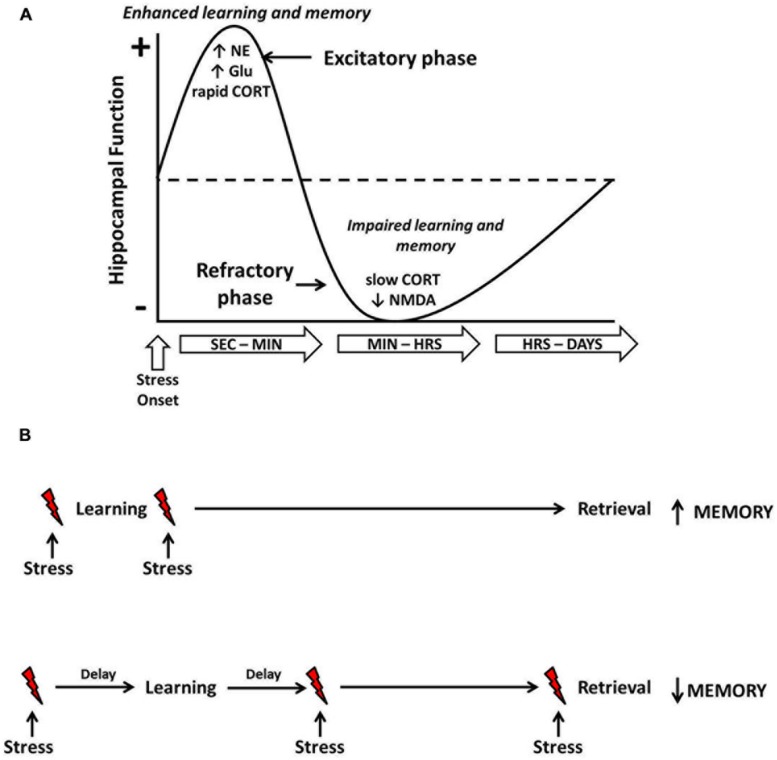FIGURE 1.
Temporal dynamics of acute stress effects on hippocampus-dependent learning and memory. Shortly following onset, stress induces a rapid increase in norepinephrine (NE), glutamate (Glu) and several other neurochemical substances (e.g., CRH, acetylcholine, dopamine, etc.). Within a few minutes, corticosteroids (CORT) are also released and can exert rapid, non-genomic effects on cellular activity. Combined, this rapid stress-induced neurochemical activity results in an enhancement of hippocampal function, and learning that occurs around this time frame would be enhanced (A). However, as time and/or the stressor continues, desensitization of glutamatergic NMDA receptors and delayed, gene-dependent corticosteroid activity results in an inhibition of hippocampal function, and learning that occurs around this time frame would be impaired. The bottom figure (B) illustrates these principles. When stress (indicated by the red lightning bolts) occurs in close temporal proximity to learning, long-term memory retrieval will be enhanced. When the stressor is temporally separated from the learning or occurs prior to retrieval, long-term memory will be impaired.

